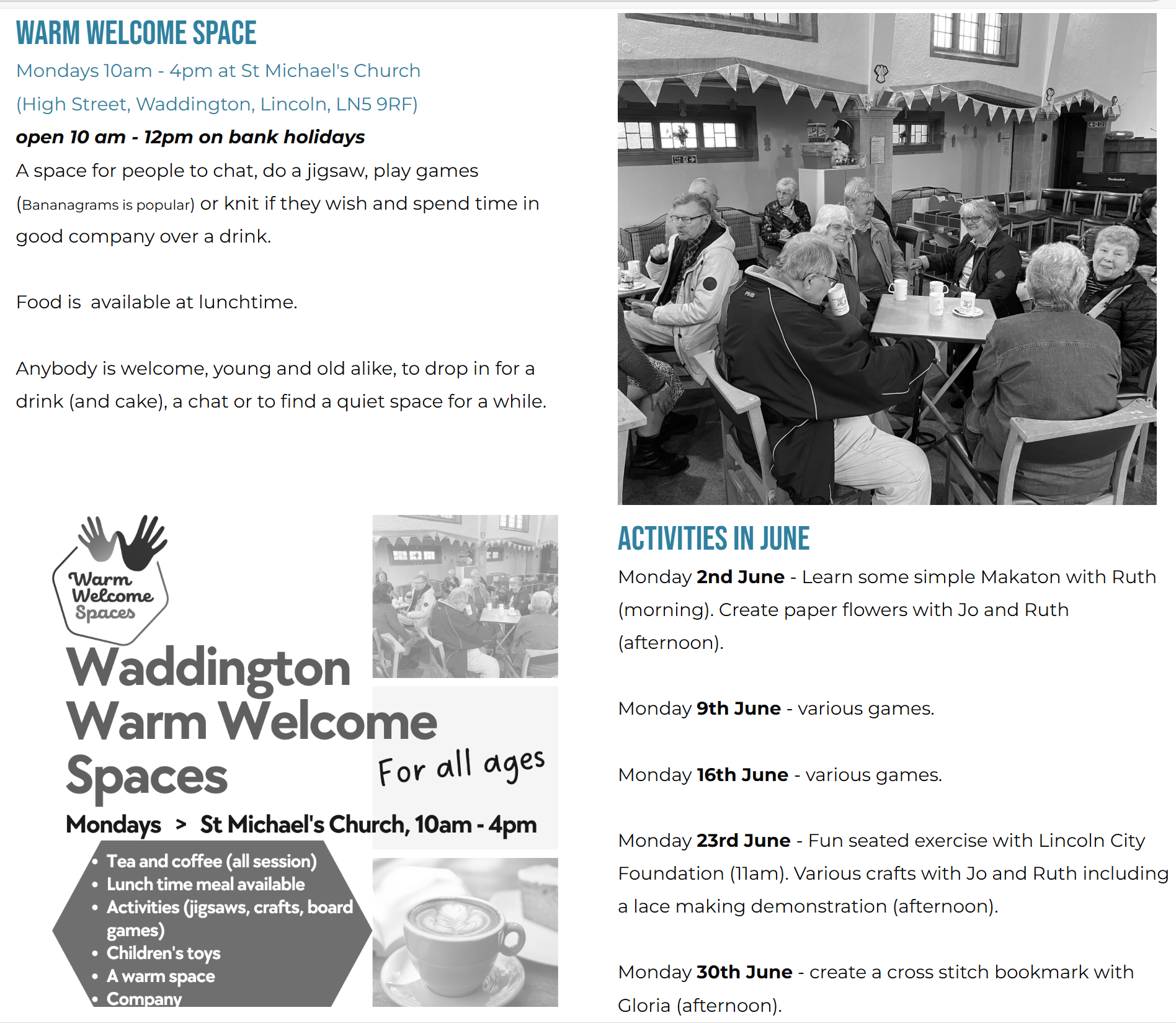- Jane's Experience Volunteering at St Michael's Waddington Wellbeing Hub (audio)

Jane, a volunteer and licensed lay minister at St Michael's Church, Waddington, shares about why she volunteers, the importance of social capital and community engagement for mental and physical well-being. She enjoys listening to people's stories and values the hospitality aspect of volunteering, which provides a sense of rest and connection. Despite administrative hurdles, Jane believes volunteering offers personal fulfillment and encourages others to participate, even if only for an hour a month. Her favorite role is organizing the "warm welcome" on Mondays, which offers regularity and friendship. She highlights the significance of food in community activities and encourages more people to volunteer, regardless of their circumstances.
St Michael's Church, Waddington, and the Waddington Wellbeing Hub they run there offer a wide selection of volunteering opportunities and groups - this was recorded at the Monday Warm Welcome Space they run.
